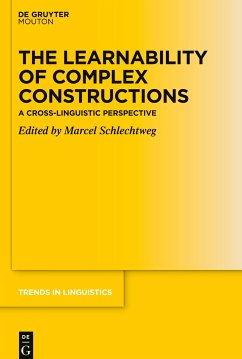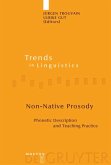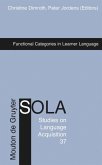How language users from different linguistic backgrounds cope with forms of complexity is still a territory with many unanswered questions. The current book is concerned with morphologically and syntactically complex items, that is, derivatives, inflected forms, compounds, phrases and forms related by agreement and examines how these constructions are acquired and learned in a great range of different languages, such as Turkish, Welsh, Basque and Catalan. Relying on a variety of methodologies targeting production or comprehension, among others, lexical decision and priming experiments, an EEG study, a corpus analysis and a reading test, the authors consider data from native speakers mastering one or more languages and second-language users. Overall, the volume reflects upon and contributes to our understanding of how the pecularities of language and its users affect the learnability of complex forms.
Bitte wählen Sie Ihr Anliegen aus.
Rechnungen
Retourenschein anfordern
Bestellstatus
Storno








